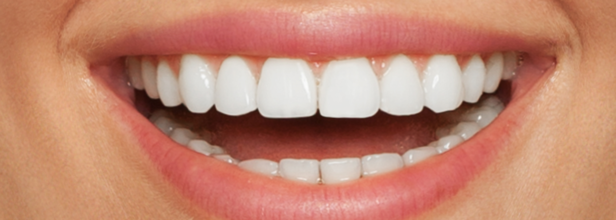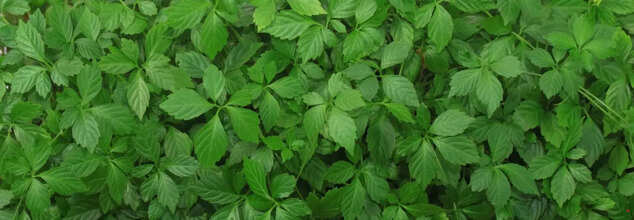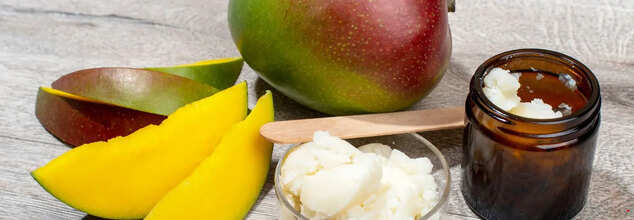
Credits: Canva
Can Drugs Regrow Teeth? Scientists Thing They Can
Japanese scientists are now testing a new drug that could possibly allow people with missing teeth to grow new ones. This could be a groundbreaking research which would offer hope for a natural alternative to dentures and implants.
So, What Really Is The Science Behind Tooth Regeneration?
Unlike reptiles and fish, who can regrow their teeth throughout their lives, human and most mammals are believed to grow only two sets of teeth. However, a research led by Katsu Takahashi, who is the head of oral surgery at the Medical Research Institute Kitano Hospital in Osaka, humans may also have dormant buds for a third set of teeth hidden beneath their gums.
Takahashi's team has therefore launched clinical trials at Kyoto University Hospital in October, administering an experimental drug which was designed to activate these dormant tooth buds. The researchers are now hoping that this treatment will restore natural teeth and eliminate the need for prosthetics, which are often costly and invasive.
How This Drug Works?
The drug targets a protein called USAG-1, which has been shown to suppress tooth growth. By blocking this protein, researchers believe they can trigger the development of new teeth. Studies on mice and ferrets have already demonstrated successful tooth regeneration, with lab images confirming the growth of new teeth in these animals.
A study published last year by Takahashi’s team confirmed that their "antibody treatment in mice is effective for tooth regeneration and can be a breakthrough in treating tooth anomalies in humans." The ongoing clinical trials will determine whether this success can be replicated in humans.
Who Could Actually Benefit From It?
As of now, the research is currently focusing on people with congenital tooth loss. This means people who have a hereditary condition that affects approximately .1% of people. These people are born missing six or more permanent teeth, which can make chewing difficult for them. It can also impact their confidence. Many in Japan wear face masks during adolescence to hide the gaps in their mouths, explained Takahashi.
"This drug could be a game-changer for them," he said. The team aims to make the drug available to children with this condition by 2030, offering a revolutionary solution to those who struggle with missing teeth from an early age.
What Others Are Doing About It?
There is indeed a global race to regrow teeth. The research has also sparked global interested with Angray Kang, a dentistry professor at Queen Mary University of London nothing that only one other team worldwide is pursuing a similar goal, using antibodies.
"I would say that the Takahashi group is leading the way," Kang told AFP, emphasizing that the approach is "exciting and worth pursuing." He noted that a similar antibody drug is already being used to treat osteoporosis, adding credibility to the concept of targeting USAG-1 for tooth regeneration.
However, experts caution that while animal studies have been promising, human trials may present unforeseen challenges. Chengfei Zhang, a clinical professor in endodontics at the University of Hong Kong, called Takahashi’s method "innovative and full of potential" but warned that "outcomes observed in animals do not always directly translate to humans."

Credit: Canva
Jiaogulan Can Boost Longevity-Know Everything About It
You’ve likely heard of ginseng and ginkgo biloba—two Chinese herbs long praised for enhancing cognitive function, boosting energy, and reducing stress. But jiaogulan, a lesser-known botanical wonder, is now making waves for its potential to rev up metabolism, lower cholesterol, reduce inflammation, and even promote longevity.
Often referred to as the “immortality herb,” jiaogulan (Gynostemma pentaphyllum) grows in the mountainous, forested regions of Asia. It's commonly known as “southern ginseng” or “miracle grass,” thanks to its wide array of health-promoting properties.
“Few people in the US know about it,” says Dr. Michael Aziz, a New York City-based, board-certified internist and regenerative medicine expert. Aziz, who consumes 900 milligrams of jiaogulan daily, underscores the growing interest in this plant and breaks down the science behind its rising popularity.
Though it has been used for centuries in traditional medicine, jiaogulan’s popularity has spiked in the last decade. Found primarily in herbal teas and dietary supplements, its leaves are valued for their high antioxidant potential.
“Jiaogulan tea has a very high ORAC value (a measure of antioxidant capacity). It’s eight times higher than what is found in green tea,” notes Aziz, author of The Ageless Revolution. He recommends brewing one to two teaspoons of dried jiaogulan leaves in 250 milliliters of water. The tea, he says, has a bitter yet slightly sweet taste, though others may describe it as earthy.
The bitterness comes from the plant’s saponins, natural compounds believed to contribute significantly to its health effects. “The bitter taste and cold nature of [jiaogulan] are particularly effective in clearing heat and detoxifying the body,” researchers wrote in the Journal of Functional Foods (January edition), highlighting its potential in managing viral hepatitis, chronic bronchitis, and gastroenteritis.
In contrast, the herb’s sweet notes are said to nourish the heart and protect the liver, benefiting the flow of qi and blood. It has also shown promise in helping with hyperlipidemia, hypertension, fatty liver, insomnia, and headaches.
Jiaogulan contains gypenosides — saponins structurally similar to the ginsenosides in ginseng. These compounds activate AMP-activated protein kinase, a key enzyme that helps maintain energy balance within cells. “They also improve insulin signaling and the function of mitochondria, the energy producers of our cells,” Aziz explains. These cellular improvements may support healthy aging and extend lifespan.
Jiaogulan may also exhibit anticancer properties and help lower blood pressure. However, like all supplements, it’s not without potential side effects. While generally safe, some users have reported nausea, diarrhea, dizziness, blurred vision, or even tinnitus.
People taking medications — particularly those with diabetes — should consult their doctors before incorporating jiaogulan into their routine. Aziz warns that the herb can significantly lower blood sugar, making dosage adjustments necessary for some.
As more people look to traditional herbs for modern health solutions, jiaogulan may be the next big thing in natural wellness.

(Credit-Canva)
Overexercising Is Much Worse Than You May Realize - Here's What Happens
Exercising is one of the most important activities one must do to keep one's health in check. Many people join gyms while others do organized sports. While many people do point out when one is not working out enough or slacking off during exercising, not many people understand why overexercising can be bad as well.
There are many reasons why people get into the fitness culture. Some people are doing it to be healthier, others could be doing it for aesthetics, like people who are professional bodybuilders, etc. Regardless of the end goal, there are many who fall into the trap of over exercising.
What Happens When You Overexercise
There are many signs of over-exercising, if you recognize these, try to take a step back or involve a professional who can help you better. If you are overexercising, you may notice how you are unable to perform on the same level as others. You may also find that your body needs more rest, you’re tired and feeling depressed along with mood swings, sore muscles etc. Many things can go wrong with your body when you over-exercise.
Dehydration
If you push yourself too hard when working out and don't drink enough water, especially on diets like keto, you can get really dehydrated without even feeling that thirsty. Being dehydrated for a long time can hurt your kidneys and cause other health problems. So, keep sipping water!
Increased Risk of Injuries
Doing too much exercise, focusing only on certain muscles, or trying to do too much too fast can cause injuries. You might suddenly tear a muscle, or you could get problems over time like small bone breaks or sore tendons, which are the cords that connect your muscles to your bones. Take it easy and listen to your body.
Mood Swings and Emotional Distress
Working out too much can mess with your feelings. Your hormones, especially stress hormones, can get out of whack. This can make you feel grumpy, easily upset, worried, sad, and just not like doing things you usually enjoy. It's important to take care of your mind as well as your body.
Diminished Results and Plateaus
Like mentioned above, MedlinePlus explains that working out too much can stop you from getting stronger or fitter. You might feel really sore and tired all the time. Sometimes, your hormones can even get messed up. In the long run, you might lose the energy to even work out, and you could even lose the progress you already made. Rest is important for getting results.
Unexpected Weight Gain
According to Cleveland Clinic pushing your body too hard with exercise can actually make you gain weight. This happens because your hormones get out of balance. You might make less of the hormones that build muscle and more of a stress hormone that makes you crave unhealthy, high-calorie foods. So, overdoing workouts can lead to stress eating and weight gain.
Body Image Issues and Disordered Eating
If you worry a lot about how you look, working out too much can make those feelings worse. It might even lead to thinking you have flaws you don't really have. This can cause people to exercise too much, eat too little, or even consider harmful procedures to try and fix how they look.
Negative Impact on Brain Function
While working out in a normal way is good for your brain and helps you remember things, doing too much can actually hurt your brain. Published in the Journal of Physiological Sciences, 2019 study showed that overtraining causes memory impairment. It can make you feel mentally tired, which can make it harder to remember things and make good decisions. You might even act more without thinking.
Menstrual Irregularities in Women
If women exercise very hard and also don't eat enough, especially if they are at a low body weight, their periods might become irregular or even stop completely. This is a sign that the body is under a lot of stress and is trying to save energy.

Credit: Canva
This Fruit Butter Can Protect Your Skin From UV Rays
Mango butter—also known as mango oil and mango kernel fat—is a type of oil that is extracted from the kernels of mango seeds. But what is the big deal about mango butter? Well, it is packed with a lot of nutrients that are extremely beneficial for your skin.
How Does Mango Butter Help Skin?
It is generally non-comedogenic. Mango butter does not have compounds that are known to irritate skin, even if yours is sensitive. One exception to this is that if you have acne, you may avoid using mango butter on your face.
Moreover, mango butter also protects from harmful Ultraviolet (UV) Rays. Mango contains salicylic acid and antioxidants, which are known to protect from sun damage.
Most notably, Vitamins C and E are in rich supply in mangoes. A 2012 study suggests that, when combined, these two ingredients may provide some protection for your skin against environmental damage.
There is no heavy scent in mango butter. While you might expect a fruity zing, most people report a mild scent.
It's antibacterial and antimicrobial, which helps clear skin. In a 2020 study, wool treated with mango seed oil was less susceptible to the presence of various types of bacteria.
It may make your hair shiny. The same properties that promote soft skin may also boost your hair's natural shine and reduce scalp dryness and flakiness.
What Is In Mango Butter That Makes It So Special?
Mangoes are loaded with nutritious substances, which is partly why they are a dietary staple around the world. They are packed with fibre, vitamins (C, B6, A, E, and more), and minerals. They are also a good source of folate, potassium, calcium, and beta-carotene.
Many of the vitamins found in mango hold skin-improving powers, so it makes sense to blend it into butter.
ALSO READ: This One “Fattening” Vegetable Could Actually Be A Part Of You Weight Loss Diet
Thanks to its fatty acid profile (it is chock-full of oleic, stearic, and linoleic acids), mango butter is used as a substitute in beauty products for cocoa butter, a long-time skin-softening favourite.
As a topical cream, it can pass along benefits like softer skin, and may offer UV protection. The same 2020 study mentioned above suggests that wool treated with mango seed oil showed a decreased amount of UV damage—so it may do the same for the skin.
Mango butter also performed spectacularly in a small 2008 study on treatments for cracked heels. A mango butter-based solution worked better than a commercially produced lotion regarding the reduction of scars and cracks in the skin and increased shelf life. It also showed similar or better results in its ability to moisturize.
ALSO READ: Is Yerba Mate Nature's Answer To Ozempic? Risks And Benefits
© 2024 Bennett, Coleman & Company Limited

